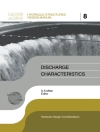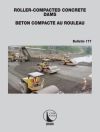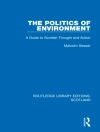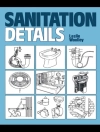An inside view of how one of the world’s leading architecture and engineering practice does business
Sustainable Built Environments: Principles and Practice offers detailed, environmentally sound design solutions to a wide range of building engineering challenges. The text uses case examples and project data provided by engineers and designers at Arup Associates. It covers a broad range of relevant issues, with focused commentaries and explanations presented in an accessible format for use by students, busy practitioners and informed clients.
Whilst this book stresses the importance of a unified approach to design, the text is divided into six principal chapters, each addressing an important aspect of sustainable architecture and engineering. These chapters (Master Planning, Transport, Energy, The Building Envelope, Environmental Services, and Materials) may be read on their own or in sequence as part of a narrative. Throughout the book, photographs, architectural and engineering drawings and diagrams, examples, and other data illustrate the case studies. Numerous web links are provided to additional information. This inspirational book:
* Focuses on the work of Arup Associates, the award winning architectural and engineering practice
* Uses real-life examples of functioning buildings and structures to provide information and guidance on the development of sustainable solutions
* Is packed with informative illustrations
Sustainable Built Environments: Principles and Practice is a unique text that will inform and inspire architects and engineers, as well as students of those disciplines, around the globe.
Inhoudsopgave
List of Contributors ix
Foreword by Dave King: Architect and Founder of Shed-KM xi
Acknowledgements xiii
1 Introduction 1
Miles Keeping, David Shiers, Ann-Marie Aguilar and Michael Beavan
Environmental Assessment 2
EPCs and DECs 5
Materials and Components 6
Life Cycle Assessment (LCA) 7
Environmental Legislation 7
Corporate Social Responsibility – CSR/ESG 9
‘Green Value’ 10
The Design Process 12
Bibliography 22
2 Master Planning 23
Miles Keeping, David Shiers and Malcolm Smith
Regeneration – Master Planning in the Existing City 25
Urban Renewal in History 27
A ‘New Urbanism’ 31
New Settlements and Large-Scale Urban Growth 34
Bicester Eco-town 39
Preston Beach, Western Australia 40
The Business Park 45
Bibliography 46
3 Transport 47
Tim Chatterton, Mark Fisher, Miles Keeping and David Shiers
Alternative Fuelled Vehicles 50
Alternative Fuels 51
Ebbsfleet International 56
Stratford International 56
Bibliography 65
4 Energy 69
Hugo Hodgson, Miles Keeping, Katharine Marsden, David Pearce and David Shiers
Renewable Energy Options 70
Photovoltaic Panels 70
Combined Heat and Power (CHP) 73
Ground Source 75
Biomass Boilers 75
Wind Turbines 77
Wave and Hydropower 77
Anaerobic Digestion 78
Conclusion 78
Bibliography 78
5 The Building Envelope 83
Michael Beaven, Mick Brundle, Paul Dickenson, Miles Keeping, Robert Pugh and David Shiers
Pitched Roofs 85
Flat Roofs 85
Ground Floor Construction 86
Framed Construction 87
Ground Floor and Upper Level Plans 98
Structural Design Strategy 102
Enabling Works 108
Substructure Design 109
Stability Core Design 110
Steel Superstructure Design 111
The Façade Design 113
Projecting Windows 114
Spandrel Panels 117
Product Design: The Wave-Form Ceiling at Ropemaker 121
Completion 124
Bibliography 124
6 Environmental Services 125
Michael Beaven, Miles Keeping, David Pearce and David Shiers
Sustainable Drainage Systems (SUDS) 130
Environmental Services Case Examples 130
Chiller Units 140
Equipment Room ‘Free Cooling’ 141
‘No Gas’ Supply 141
Mixed Mode Ventilation 141
Bibliography 143
7 Materials 145
Jane Anderson, Michael Beavan, Francesca Galeazzi, Miles Keeping, David Shiers and Kristian Steele
Hazardous and Deleterious Materials 149
Bibliography 157
Conclusions 158
Appendix A The Arup Story 159
Appendix B Arup Guidance Note on GLA Requirements for Renewables 169
Appendix C Arup Team Members 175
Index 177
Over de auteur
Miles Keeping is a Chartered Surveyor and Chartered Environmentalist working in professional practice. He co-founded the Hillbreak consultancy in 2015 and is Visiting Professor in Sustainable Real Estate at Oxford Brookes University.
David Shiers trained as an Architect and is currently Reader in Sustainable Architecture in the School of the Built Environment at Oxford Brookes University.












